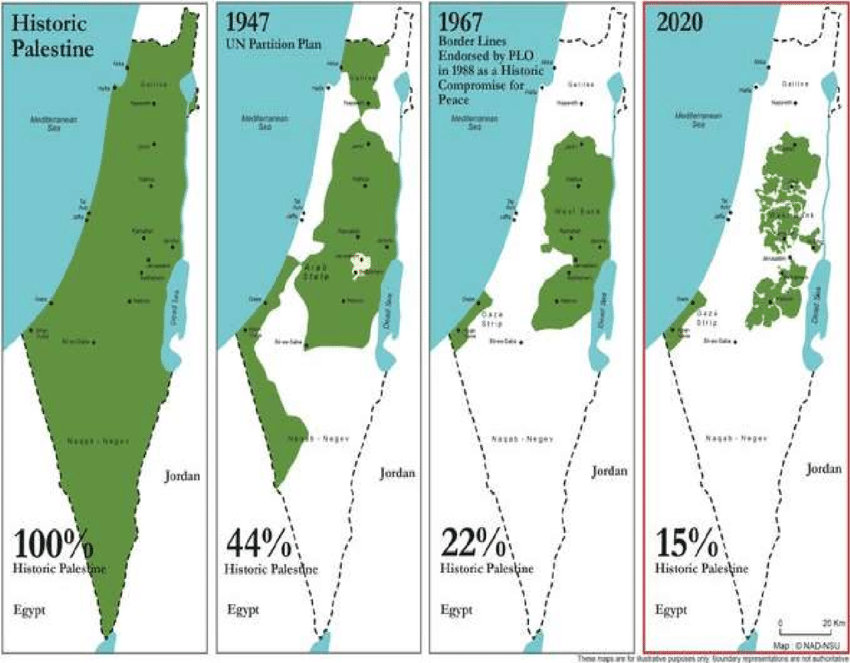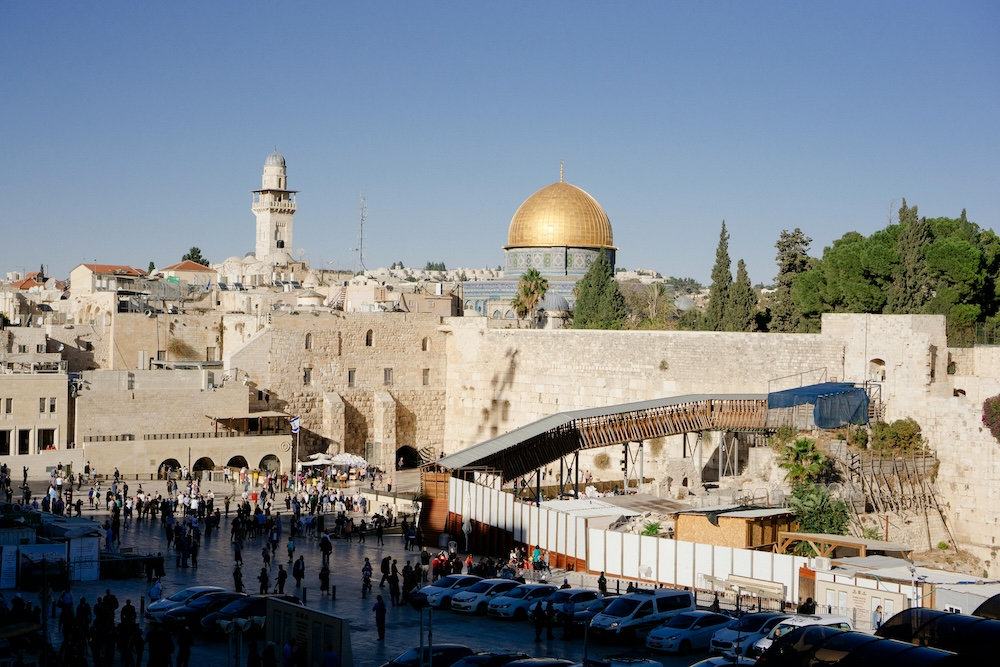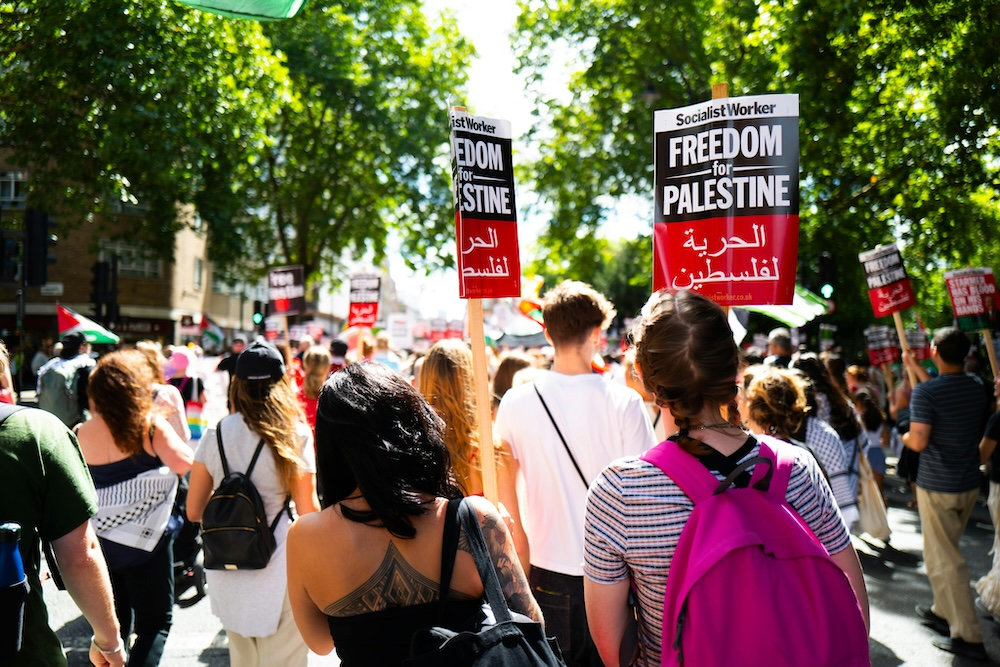The Israeli-Palestinian conflict is one of the longest-lasting and most deeply rooted conflicts in human history. It is marked by complicated interactions of old rivalries, religious beliefs, colonial legacies, and changing powers. To comprehend this issue with genuine objectivity, it is imperative to transcend contemporary political narratives and engage in a multi-faceted historical exploration, from the mythological realm of Canaan, through biblical migrations and imperial conquests, to the current crises in the Middle East.
This article seeks to deliver a thorough, impartial examination of the conflict's origins, significant turning points, and changing context, critically analyzing both Israeli and Palestinian viewpoints, international interventions, and the frequently neglected regional dynamics. Sources include historical records, religious texts, scholarly commentaries, and reliable alternative investigations.

The Ancient Beginnings: Canaan, Abraham, and the Seeds of Division
The Israeli-Palestinian conflict has its roots in the ancient land of Canaan, which is held in high regard in religious texts and archaeological records. There is disagreement about where the Canaanites came from, but Israeli sources say they are descended from the biblical Noah. However, the absence of continuous recordkeeping-resulting in 90% of human history being unrecorded or lost-implies that analysis frequently depends on fragments preserved through oral tradition and sacred texts.
Abraham's move to Canaan marks a major change. According to religious texts, Abraham had two sons, Ishmael and Isaac, who later became models for the Arab and Israelite peoples. Even though they later became enemies, these groups are called "brothers" in the Bible because they have the same ancestor and their fates are linked. As time went on, these lineages spread throughout the Levant and Egypt, making their identities even more different and starting centuries of competition.
The Exodus, God's Orders, and the First Victories
The Israelites live in Canaan for hundreds of years before waves of migration bring them to Egypt, where they eventually join the working class. Traditional religious stories say that Moses was a prophet who was given the job of leading these people back to the "Promised Land" from Egypt. In contrast to ideas of peaceful return, divine commands frequently entailed violent conquest:
"Go to the land we promised you and kill everyone there."
"Kill every Canaanite, man, woman, child, and animal."
The orders in Deuteronomy and Joshua allowed for total war as the Israelites besieged Jericho, which caused huge losses and deep psychological damage to the people who lived there. Historical parallels from this period resonate in contemporary sociopolitical discussions.
Empires that Come and Go and Constant Change
After the Babylonians destroy the first Israelite kingdoms, which were built by people like David and Solomon, a pattern of conquest, exile, and return begins to take shape. The Israelites, who had been held captive by the Babylonians, built the powerful Kingdom of Judah, rebuilt the Second Temple, and restored regional power. However, the Roman Empire's intervention and the Temple's destruction broke up the community again. These repeated cycles of losing everything and rebuilding made Jews remember being homeless and being strong.
Palestine comes under Ottoman rule hundreds of years later. The Ottomans didn't bother religious or ethnic groups as much as other empires did, which let Jews, Muslims, and Christians live together peacefully. People generally think of this time as one of relative peace and acceptance. But betrayals from within and manipulation from outside ultimately weaken the Ottoman presence, setting the stage for modern Middle Eastern wars.
The Colonial Carve-Up and the Rise of Nationalism
World War I marks a big change: the Sykes-Picot Agreement, which is known for its bad reputation, not only changes borders in the Levant but also causes problems between former allies. Mark Sykes, a British diplomat, led the effort to make flags for new Arab states like Palestine, the United Arab Emirates, Kuwait, Sudan, Jordan, Iraq, and Syria. These flags became a symbol of rebellion against the Ottomans.
The Hejaz Railway incident, in which Arab tribes betray Ottoman soldiers to British forces, shows how colonial ambitions hurt native communities and how former religious allies have grown apart.
The Sykes-Picot Betrayal
The secret 1916 Sykes-Picot Agreement between Britain and France divided the Ottoman territories without regard for ethnic, religious, or tribal boundaries. This colonial carve-up created artificial states and sowed the seeds for decades of conflict, including the Israeli-Palestinian crisis.
The Balfour Declaration (1917), which was put together by British agents, promises to make Palestine a "national home" for Jews. This makes things worse as promises to both Jews and Arabs fall apart. After the British take Jerusalem with the help of Palestinians, they turn their attention to Jewish interests, which makes Palestinians feel betrayed and dispossessed.
The Birth of Israel and the Change in Palestine
The Holocaust, anti-Jewish movements in Europe, and changes in the world's political landscape after World War II all led to a large number of Jews moving to Palestine. Even though there was a lot of opposition and calls for partition at the United Nations on May 14, 1948, Jewish immigrants and groups started buying Palestinian land. By 1948, they owned about 4-6% of it. This was enough to establish footholds and let the population grow, eventually becoming the majority in important areas. After the official creation of Israel, Palestinians are still being forced to leave their homes and lose their rights.
Despite popular internet myths, only a small part of Palestine was sold to Israelis. However, settlements, concentrated population shifts, and public housing projects make new demographic realities more stable, which increases tension and competition over sovereignty.
Modern War and Cycles of Violence
After years of sporadic violence, regional powers support Israel, whose technological and military superiority allows it to keep Palestine under strict control. Periodic Palestinian resistance is then used to justify harsh reprisals and more territorial expansion. The siege and blockade of Gaza, military operations in the West Bank, and periodic outbreaks of armed conflict have killed thousands of civilians and caused widespread humanitarian crises.

Media narratives, international interventions, and security doctrines frequently obscure the profound personal anguish of the conflict: families divided, homes obliterated, children interred beneath debris, and communities traumatized. Both sides base their claims on religious texts, which keeps their beliefs about divine mandate, property rights, and national identity from being able to be changed.
The Contradiction of Faith and Justice
There is a very strange contradiction at the heart of the Israeli-Palestinian conflict. Both Jews and Muslims say that their claims come from the same Abrahamic source and scriptures, and both sides say that God's rules about the land never change. The Torah tells Jews that God promised Palestine, and the Quran tells Muslims to protect it for Allah. The theological impasse, coupled with historical trauma, guarantees persistent polarization and rhetorical obstinacy.
Religious Absolutism
When both sides claim divine mandate over the same territory, compromise becomes nearly impossible. This theological deadlock transforms a territorial dispute into an existential struggle where neither side can yield without betraying their fundamental religious identity.
Betrayals, Realpolitik, and Regional Instability
The tragedy of Palestine's betrayal by colonial powers and neighboring Arab states, many of which chose expedient alliances over collective solidarity, is a recurring theme in historical narratives. British dishonesty, Arab nationalist goals, and competition between global superpowers turned Palestine from a peaceful Ottoman backwater into a fiercely contested battleground.
In recent years, people have been worried about waves of migrants coming into nearby countries like Turkey, where tensions are high because of rising rents, economic uncertainty, and cultural upheaval that has been caused in part by instability in the Middle East. The conflict's effects are felt far beyond its borders, affecting societies in Europe and the wider Muslim world.

The Human Cost: Innocence in the Middle of Death
The grand strategic moves are leaving behind regular Palestinians and Israelis, as well as many other civilians in the region who just want to live with dignity, safety, and prosperity. People on both sides are going through terrible pain because leaders are pursuing ideological obsessions and zero-sum goals that have proven impossible to reach. Cycles of revenge, dogmatic politics, and sectarian propaganda make it less likely that people will be able to talk to each other and make up.
Toward an Objective Comprehension and a Way Forward
The Israeli-Palestinian conflict is more than just a fight between the occupier and the occupied or between two religious groups that want to be in charge. It is a story that spans many generations and is shaped by lost kingdoms, colonial lies, religious zeal, practical alliances, and deep betrayals. No side can say that they are better than the other in terms of history or morals. Both have used their power for their own gain, both have lost loved ones in traumatic ways, and both have acted in ways that hurt peace and coexistence.
Solutions remain elusive, primarily due to narratives being entrenched by centuries of trauma, myth, and dogma. For real progress to happen, we need more than just international pressure, political talks, and economic growth. We also need a change in how we remember things and how we understand religion. Justice must focus on innocent lives and fundamental human rights instead of continuing cycles of revenge.
Conclusion
The long-lasting conflict between Israel and Palestine is the result of a long and troubled history that has been shaped by religious beliefs, realpolitik, and outside forces. Only a multifaceted, historically valid understanding can guide responsible discourse and pragmatic pathways forward. Countries whose flags used to stand for anti-imperialism are now going through their own existential crises. This shows how important it is for everyone to work for peace, truth, and unity in a world that is always changing.
References
- The Torah, the Book of Deuteronomy, and Joshua - Hebrew Bible
- The Quran, selected verses about the Promised Land and religious duty
- Karsh, Efraim. "Empires of the Sand: The Struggle for Mastery in the Middle East, 1789-1923." Harvard University Press, 2001
- Cleveland, William L., and Martin Bunton. "A History of the Modern Middle East." Westview Press, 2016
- Gelvin, James L. "The Israel-Palestine Conflict: One Hundred Years of War." Cambridge University Press, 2014
- The United Nations Partition Plan for Palestine, 1947
- The British Government's Balfour Declaration of 1917
- Morris, Benny. "Righteous Victims: A History of the Zionist-Arab Conflict, 1881-1999." Vintage, 2001
- Khalidi, Rashid. "Palestinian Identity: The Construction of Modern National Consciousness." Columbia University Press, 1997